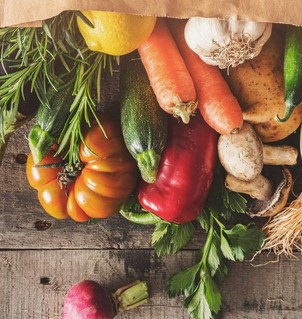Introduction:
In recent years, there has been a notable shift in consumer preferences towards healthier, more sustainable food choices, leading to the rapid growth and mainstream acceptance of organic food. Once considered a niche market catering to health-conscious individuals and environmental enthusiasts, organic food has now entered the mainstream, gaining popularity among a diverse range of consumers. In this article, we’ll explore the factors driving the organic revolution and examine the implications of this trend for both consumers and the food industry.
- Increasing Health Awareness:
One of the primary drivers behind the mainstream adoption of organic food is growing awareness of the health benefits associated with organic eating. Consumers are becoming more informed about the potential risks of pesticides, synthetic additives, and genetically modified organisms (GMOs) commonly found in conventional food products. As a result, many individuals are choosing organic options to minimize exposure to harmful chemicals and prioritize their health and well-being. - Concerns About Environmental Sustainability:
In addition to health considerations, consumers are increasingly concerned about the environmental impact of food production and agriculture. Organic farming practices, which prioritize soil health, biodiversity, and natural resource conservation, offer a more sustainable alternative to conventional farming methods. By choosing organic products, consumers can support regenerative farming practices that promote soil fertility, reduce greenhouse gas emissions, and protect ecosystems. - Expansion of Organic Product Availability:
Advancements in organic farming techniques, distribution channels, and market infrastructure have made organic food more accessible and affordable than ever before. Organic products are now widely available in mainstream grocery stores, supermarkets, and online retailers, offering consumers greater convenience and choice. Additionally, the diversification of the organic market has led to the introduction of a wide range of organic options, including fresh produce, dairy products, meat, poultry, snacks, and packaged goods. - Support from Retailers and Food Industry:
Major retailers and food manufacturers have recognized the growing demand for organic products and have responded by expanding their organic offerings and investing in organic certification and labeling initiatives. Grocery chains and food retailers are devoting more shelf space to organic products and partnering with organic suppliers to meet consumer demand. Furthermore, food industry giants are acquiring organic brands and investing in organic agriculture to capitalize on the lucrative organic market segment. - Consumer Trust and Transparency:
Organic certification standards and labeling regulations provide consumers with confidence and assurance that the products they purchase meet strict organic criteria. Organic certification ensures that foods are produced without synthetic pesticides, herbicides, fertilizers, or genetically modified organisms (GMOs), and adhere to organic farming practices outlined by certifying bodies such as the USDA Organic program. Transparent labeling and clear communication of organic attributes help consumers make informed choices and build trust in organic brands and products.
Conclusion:
The mainstream adoption of organic food represents a significant shift in consumer preferences and purchasing behaviors, driven by concerns about health, environmental sustainability, and food quality. As organic options become more accessible, affordable, and diverse, consumers are embracing organic eating as a lifestyle choice that aligns with their values and priorities. This organic revolution is reshaping the food industry landscape, prompting retailers, manufacturers, and policymakers to respond to the growing demand for organic products and support sustainable food systems. By embracing organic food and supporting organic farming practices, consumers can contribute to a healthier, more sustainable future for themselves and the planet.
